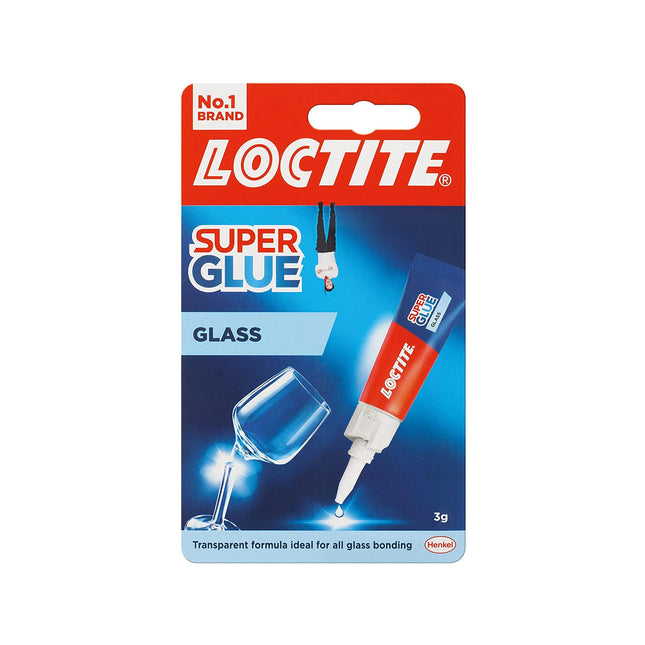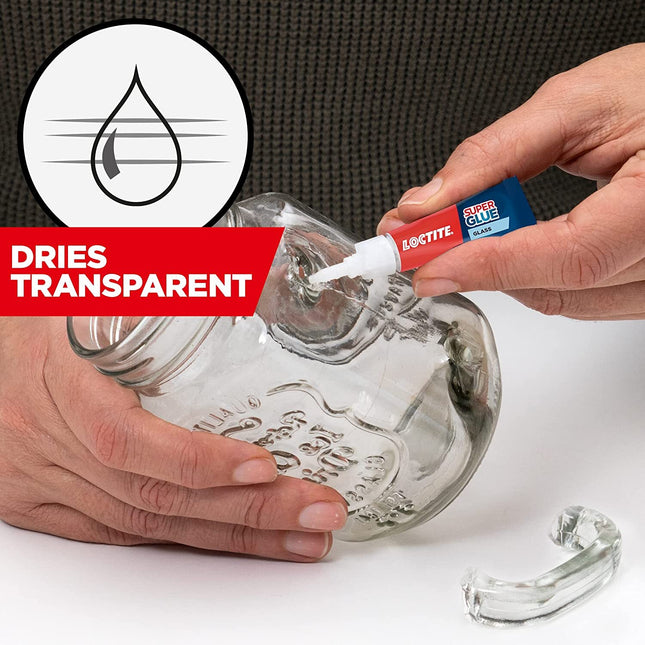Introducing Gorilla Fabric Glue - Your Ultimate No-Sew Solution!
Say goodbye to tedious needle and thread work and embrace the power of Gorilla Fabric Glue! This remarkable adhesive is a 100% waterproof, no sew solution for all your fabric needs. From hems to embellishments, trim, and more, Gorilla Fabric Glue is your go-to partner for crafting and repairing with ease.
Experience the magic of a fast-setting, permanent bond with Gorilla Fabric Glue! Designed to tackle even hard-to-hold embellishments, this adhesive ensures your fabric creations stay intact for the long haul. Once cured, it remains flexible, allowing your fabrics to move naturally without losing durability.
Prepare to be amazed by the crystal clear finish! Gorilla Fabric Glue dries clear, leaving no unsightly traces behind. Plus, it's washer and dryer safe, so your creations can endure countless washes without losing their strength.
Crafters, rejoice! Gorilla Fabric Glue boasts a no-run formula, making application a breeze. Say goodbye to messy mishaps and hello to seamless, professional results.
Versatility is its middle name! Gorilla Fabric Glue bonds with various surfaces, including fabric, felt, beads, wood, canvas, ribbon, sequins, and more. Whatever your creative vision, Gorilla Fabric Glue has got you covered.
Directions for Use:
For optimal results, always test on a scrap of the intended fabric. Pre-wash the fabric without using fabric softener. Use the adhesive between 10°C and 32°C for best performance.
Apply the Gorilla Fabric Glue to each surface to be bonded.
To maximize bond strength, wait approximately two minutes for the adhesive to partially dry before joining the surfaces.
Press the surfaces firmly together.
*Note: The bond forms immediately and can be difficult to reposition, so precision is key.
Cure Time:
Allow for a minimum of 24 hours for full cure. For washing and ironing, wait a minimum of 3 days after bonding. For washing, use a delicate cycle, and for drying, choose low or no heat settings.
Storage Tips:
After each use, wipe the nozzle with a dry cloth and tightly replace the cap. Store Gorilla Fabric Glue in a cool, dry location, away from children and animals. For easier re-opening, apply a thin coat of petroleum jelly to the threads before replacing the cap.
Clean-Up:
Wipe any uncured adhesive with a dry cloth and clean the surface with acetone, isopropyl alcohol, or citrus-based solvents following the manufacturer's instructions. For a clean surface after curing, gently scrape off the cured adhesive.
Technical Specs:
Application Temperature: 10°C to 32.2°C, best at room temperature
Outdoor: Yes
Moisture Resistant: Waterproof
Paintable: Yes – compatible with water and oil-based paints, and spray paint
Sandable: Yes
Stainable: Yes
Cured Color: Clear
Bring your fabric creations to life with Gorilla Fabric Glue! Embrace the simplicity, durability, and versatility of this game-changing adhesive. Crafters, DIY enthusiasts, and repair wizards alike can now achieve professional results without a single stitch. Join the Gorilla Glue family and take your fabric projects to new heights of excellence!
FAQS
How should Gorilla Fabric Glue be stored?
After each use, wipe nozzle with a dry cloth and tightly replace cap. Store in a cool, dry location. Tip: for easier re opening, apply a thin coat of petroleum jelly to the threads before replacing cap.
What surfaces does Fabric Glue adhere to?
Gorilla Fabric Glue can be adhered to many surfaces including: Fabric, Felt, Beads, Wood, Canvas, Ribbon, Sequins, Leather, Paper, Foam and Rubber
*NOTE: Not recommended for use on polystyrene, polypropylene or polyethylene products. Not for use on food contact surfaces. Do not dry clean. May cause damage to finished surfaces.
Is Gorilla Fabric Glue food safe?
Fabric Glue should not be used around food.
How do you clean up Gorilla Fabric Glue?
When using Fabric Glue, it is best to wear safety glasses and chemical resistant gloves. To clean uncured adhesive: wipe uncured adhesive with a dry cloth and clean with acetone, isopropyl alcohol, or citrus based solvents according to manufacturer’s instructions. Cured adhesive may be removed by scraping from surface. See first aid treatment for skin contact.
Is Gorilla Fabric Glue gap filling?
No
Is Gorilla Fabric Glue UV Resistant?
Yes
Is Gorilla Fabric Glue stainable?
Yes, Gorilla Fabric Glue is stainable when fully cured.
Is Gorilla Fabric Glue sandable?
Yes, cured Gorilla Fabric Glue is sandable.
Is Gorilla Fabric Glue paintable?
Yes, when fully cured.
Is Gorilla Fabric Glue Washer/Dryer safe?
Yes
Is Gorilla Fabric Glue photo safe?
Gorilla Fabric Glue is safe to use with photos.
Read more less













































![Sika Sikasil Pool Silicone Water Resistance [Transparent]](http://gluesaustralia.com.au/cdn/shop/files/76128946_314287d6-23cc-4ab5-90d4-1c020429de31.png?v=1754711691&width=645)






















